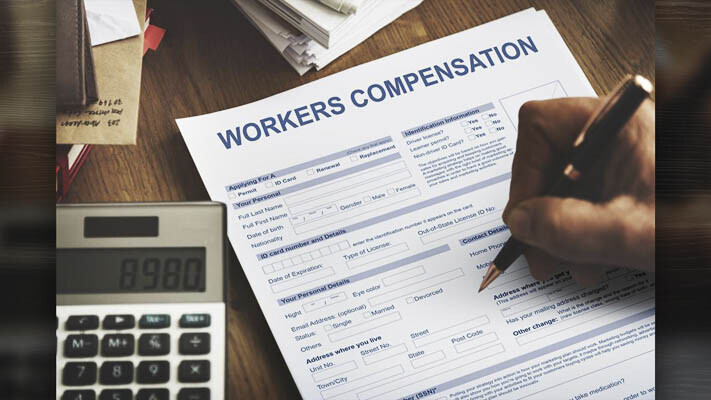
Workers’ compensation premiums going up 4.9% for each full-time employee
Brett Davis
The Center Square Washington
An average annual increase of $65 in workers’ compensation premiums will be shared by employers and employees starting Jan. 1.
Earlier this year, Washington’s Department of Labor & Industries announced the 4.9% compensation premium rate increase for each full-time employee. Workers will pay about a quarter of the premium.
Opinions on impact to consumers differs between individuals at the state and national level of the National Federation of Independent Business. Patrick Connor, director of the NFIB in Washington, believes consumers will feel the domino effect; Anthony Malandra, a senior media manager for NFIB nationally, cited a 20-year-old survey saying businesses will absorb the hit.
The Labor Department touts the rate hike as a way “to help cover the cost of providing wage and disability benefits for injured works, as well as medical treatment of workplace injuries and illnesses.”
The National Federation of Independent Business worries that increased workers’ compensation costs would be another burden born by the state’s small business owners. Malandra, in an email to The Center Square, says “the increase in workers’ compensation premium rates is another example of the inflationary times we’re living in.”
Referencing NFIB’s November Small Business Economic Trends report, Malandra said 22% of owners indicated “that inflation was their single most important problem operating their business.”
Malandra went on to point out that of the 75 issues measured in NFIB’s 2020 Small Business Problems and Priorities report, workers’ compensation ranked No. 22.
Connor said using the Labor Department’s estimates, the state-run workers’ compensation system already averages annual cost of $1,300 per employee.
“This 5% rate hike,” he wrote in an email to The Center Square, “means a small business with 10 employees will be hit with a $650 bigger bill in 2024. It also takes more money out of workers’ pockets, since part of these costs can be deducted from their paychecks.”
The timing of the rate increase is not good for small businesses, according to Connor.
“This latest workers’ comp tax hike comes as employers are also paying higher wages to attract and retain workers, adjusting to mandatory minimum wage and overtime-exempt salary increases, and scrambling to cover other government-mandated benefit obligations, let alone increased costs for goods, equipment, and services due to inflation,” he said.
Customers could be impacted as well, Connor stated.
“Some businesses will be forced to increase prices just to stay afloat as the flood of government-mandated costs continues to rise,” he said.
Malandra had a slightly different take on businesses passing along higher costs to customers.
“Interestingly, small business owners don’t necessarily pass cost increases onto their customers,” he said, referencing an NFIB survey from more than 20 years ago.
Per the 2001 survey, “Small-business owners respond to cost increases with a variety of specific actions. The most frequently taken actions include absorbing the increased cost in the form of lower earnings or profits, higher selling prices, and reductions in the use of the good/service whose cost rose, e.g., energy conservation when energy costs rise. Employee-related measures, e.g., layoffs, or altered investment patterns are not taken often unless they are the good/service whose cost increases.”
Connor decried Washington’s requirement that all employers – except those authorized to self-insure – must purchase workers’ compensation insurance from a state fund.
“The best way to address the problems this rate hike will cause is for Washington state to allow competition in the workers’ compensation insurance market just as 46 other states have done for decades,” he said.
That’s a reference to the fact that in 46 states and the District of Columbia, employers are generally expected to purchase workers’ compensation insurance from private insurance companies, which are free to offer the coverage or not as they see fit.
This report was first published by The Center Square Washington.
Also read:
- House Democrats advance $18B in tax hike proposals as session winds downHouse Democrats in Washington advanced several tax hike proposals as the legislative session nears its end, aiming to address a major budget shortfall.
- Republican budget leaders see showdown ahead as Senate Democrats approve trio of major tax increasesSenate Democrats in Washington have approved major tax increases, prompting Republican budget leaders to warn of a growing showdown ahead.
- Representatives from the 18th and 20th Legislative Districts to hold joint town hall on May 3Lawmakers from the 18th and 20th Legislative Districts will host a joint town hall on May 3 at Battle Ground City Hall to review the legislative session and hear from residents.
- Expect delays on northbound I-5 near Ridgefield through May 9Northbound I-5 travelers near Ridgefield should expect delays through May 9 as crews work on improvements at the Exit 14 off-ramp to support future development.
- Brandon Erickson announces candidacy for Clark County Charter Review CommissionBrandon Erickson has announced his candidacy for the Clark County Charter Review Commission, seeking Position 1 in District 2.
- Clark County Sheriff’s Office investigating a reported burglary that led to apparent suicideThe Clark County Sheriff’s Office is investigating a reported burglary in Vancouver that ended with the apparent suicide of Charles Gardiner, interim chief of the Cowlitz Tribal Public Safety Department.
- POLL: Why did voters reject all three tax proposals in the April 22 special election?Clark County voters rejected all three tax measures on the April 22 special election ballot, prompting questions about trust, affordability, and communication.











